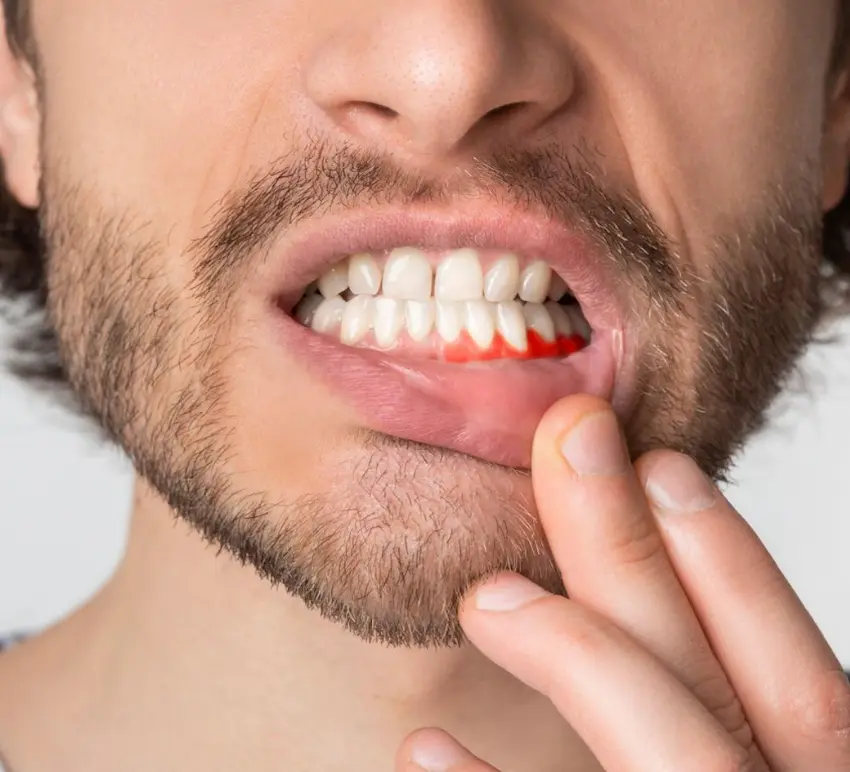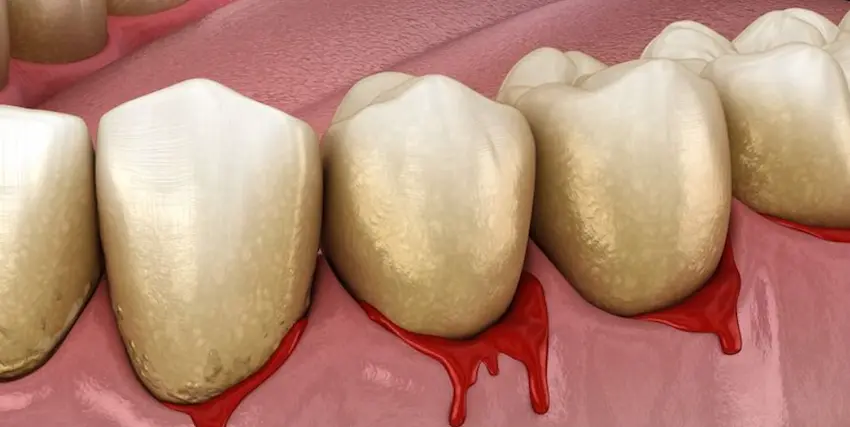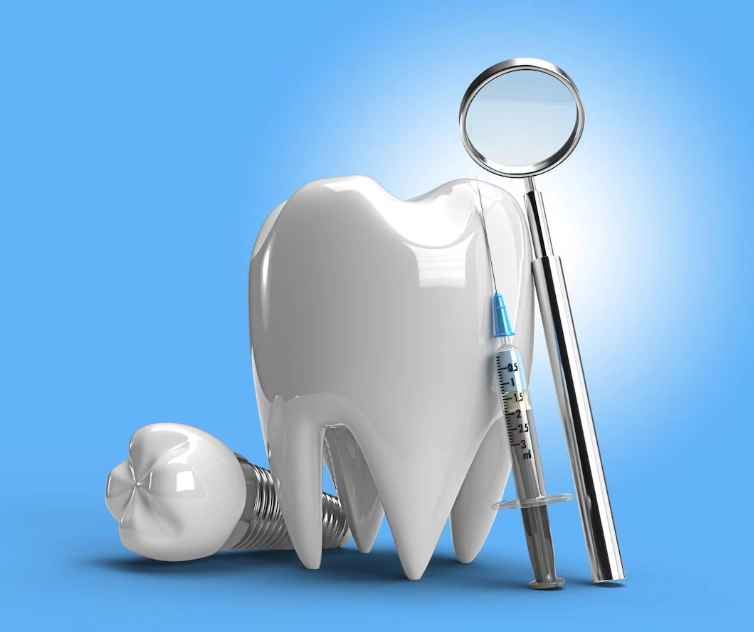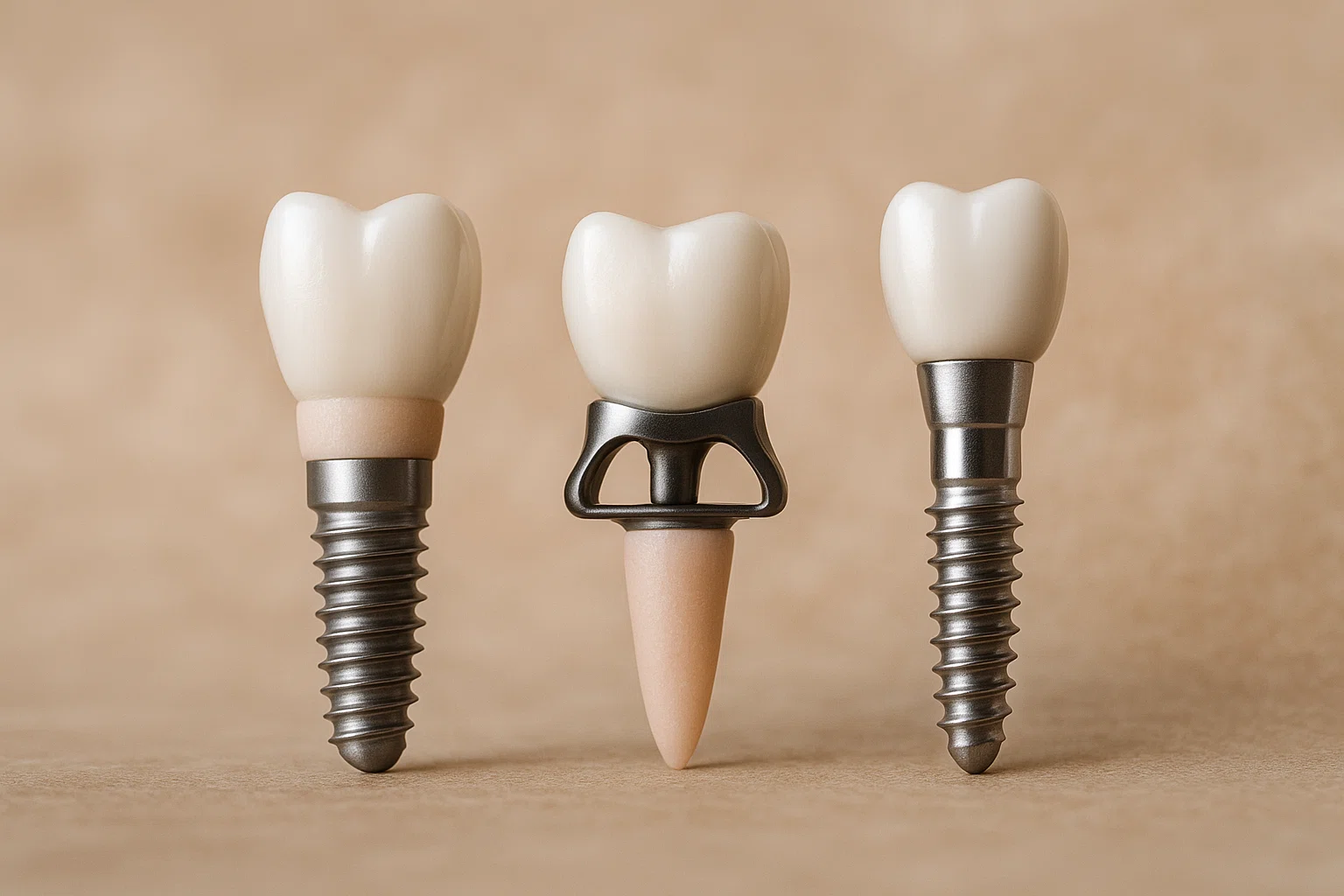Bleeding Gums: What Causes It and How Is It Treated?

Bleeding gums can produce panic, particularly when you find blood in your mouth while brushing or flossing. It has often been treated as a trivial issue but the bleeding gums can indicate some latent dental or health fiascos. Therefore it plays a very crucial role in maintaining good gum health, preventing more severe conditions, such as gum disease, if we know what causes the gums to bleed and how to treat them.
Why not take a look on the causes of bleeding gums, the ways of treating them, and, the proper steps for improving your gum health in the next part?
What Causes Bleeding Gums?

There are plenty of reasons why gums can be bleeding, and gum disease is the one that is most often referred to. The major causes are outlined below:
1. Gingivitis
Once again I repeat that gingivitis is the reason for blood because it is still the most frequent form of gum disease affecting people. Plaque is that which makes your gums bleed because it is a sticky mass of bacteria that forms on your teeth. This can make the gums hurt, become red, and bleed, especially when you brush or floss. If the oral hygiene is improved, the situation may be reversed because gingivitis is usually not very severe.
2. Periodontitis
When gingivitis progresses untreated, it leads to periodontitis, which is much more critical in gum disease. During periodontitis, you can see that the gums are separating from the teeth, and deep crevices are formed and they are usually full of bacteria causing the problem. The infection is the main trigger of the erosion of your bones and tissues that would leave your teeth unsupported, hence making you go through an even more severe status of the gum. The majority of periodontitis cases have to be treated professionally and involve deep cleaning and sometimes surgery.
Besides plaque built up along the gumline due to lack of regular brushing and flossing, no flossing or brushing unstuck can be a way of such. Unfortunately, inadequate oral hygiene is also a crucial factor responsible for the diseases of gums and the loss of teeth.
4. Use of Certain Medications
What some medications can do is to turn your gums into rather unstable ones than normal at ease, you just back the tape without properly getting the doctor’s recommendation.
5. Hormonal Changes
However, hormonal imbalances such as those experienced during pregnancy, menstruation, or menopause can lead to receding gums and consequent bleeding. Have you ever experienced other mothers who it has happened to?
6. Vitamin Deficiencies
That is, of course, the case when your organism needs vitamin C, which is the most critical element for keeping your gums healthy, and a lack of it leads to infection and the division of cells into layers of the skin. Moreover, among other things, a well- balanced diet that contains a sufficient amount of vitamins and nutrients can also guarantee the absence of these problems.
7. Illnesses and Health Conditions
There are illnesses that in itself are the cause of gum bleeding, such as diabetes or blood disorders (hemophilia or leukemia). In many cases, people with diabetes experience more periodontal diseases than other groups, and it is these festered bleeding gums acting as a sign that detects it initially.
8. Incorrect Brushing Technique
Using a hard-bristled toothbrush or applying too much pressure during brushings can cause damage to your gums which may result in their bleeding. It is recommended to get a toothbrush with soft bristles and use gentle back-and-forth or circular cleaning motion to minimize gum irritation.
What are the Methods of Bleeding Gum Treatment?
Definitely, the treatment for bleeding gums completely depends on what the root cause is. These are the possibilities that can occur:
1. Upgraded Oral Hygiene
Initially, following improved hygiene rituals is the best fit to begin addressing gum bleeding. In order to maintain good oral health, brushing your teeth with a soft-bristled toothbrush containing fluoride toothpaste for at least twice a day and flossing daily to remove food and bacteria from tight spaces between the teeth is a must. Using a mouth rinse with an antiseptic effect also helps in getting rid of plaque and bacteria from the mouth.
2. Professional Treatment
For gingivitis or periodontitis, regular professional oral hygiene procedures are usually performed by a dentist or dental hygienist, to clean the sub-gingival areas and remove the plaque and tartar from the pockets under the gumline. If the case is of a more serious nature, the dental professional will do a deep cleaning (scaling and root planing) that helps in copulation of the gums back to the teeth and it will eradicate the infection as well.
3. Administration of Antibiotics
If gum issues are mainly causing an infection, then your dentist will prescribe you some antibiotics to take to kill off the bacteria in the mouth. Sometimes, they will recommend applying a product directly to the location of the infection, which will be an antibiotic mouthwash.
4. Medication Change
You can also address the cause of your bleeding gums by seeking a doctor’s advice on changing your medications, if that may be the reason. You can discuss with the doctor about getting another drug or reducing the dosage, which may in turn also reduce the negative effects of the gum tissue you may be having.
5. Surgical Treatment
In cases where periodontitis, also known as advanced gum disease, has already set in, surgical means may be the only option for treatment. Procedures such as gum grafts or flap operations may be carried out to remedy the affected gum tissue, and if required, the pockets of infection can be thoroughly cleaned and reduced in size.
6. Vitamin Supplements
If you are experiencing a deficiency of a single nutrient (like vitamin C), your dentist or doctor could be the one to give you a recommendation about what to ear or supplements to take in order to combat periodontal diseases. Eating a lot of fruit, vegetables, and lean meat can also help and hence improve the condition of the gums.
7. Switch to a Softer Toothbrush
Change your toothbrush to a soft-bristled one and ensure you brush your teeth only by following the gentle, circular motion if overly hard brushing is the reason why your gums are bleeding. It is also important to avoid brushing too hard, as this can result in further irritation and an increase in the rate of bleeding.
Conclusion
Do not underestimate the seriousness of bleeding gums, the reason being that they are usually an indication of a more comprehensive problem such as gum disease or any other diseases. By practicing effective oral hygiene, paying regular visits to your dentist, and dealing with your medical condition properly, you can be able to stop the bleeding and avert any further complications.
In the event that you are dealing with the problem of bleeding gums, it is essential that you seek immediate medical attention to prevent severe implications in the course of time.
In Lema Dental Clinic in Istanbul, Turkey, our service is centered around the treatment of the issues of the periodontium, as well as concerns that are referred to dental health care in a holistic manner. Should bleeding gums be a problem you experience, we advise you to make an appointment with us to receive our consultations on the treatment necessary for a healthier smile.
The most common cause of bleeding gums is gingivitis, an early stage of gum disease caused by plaque buildup. Proper oral hygiene can help prevent this.
Yes, improving your oral hygiene by brushing and flossing regularly, using mouthwash, and avoiding aggressive brushing can help treat and prevent bleeding gums.
If your gums continue to bleed despite practicing good oral hygiene, or if you experience pain or swelling, you should see a dentist for professional treatment.
Yes, in some cases, bleeding gums can be a sign of more serious health issues, such as diabetes or blood disorders. It’s important to consult with a healthcare provider if you suspect an underlying health condition.
With proper treatment, mild gum bleeding can resolve within a few days to a week. However, more severe cases, like gum disease, may take longer to heal and may require professional care.




